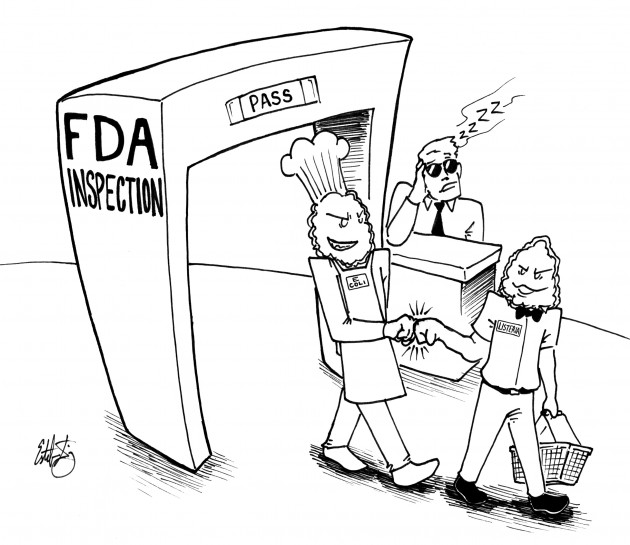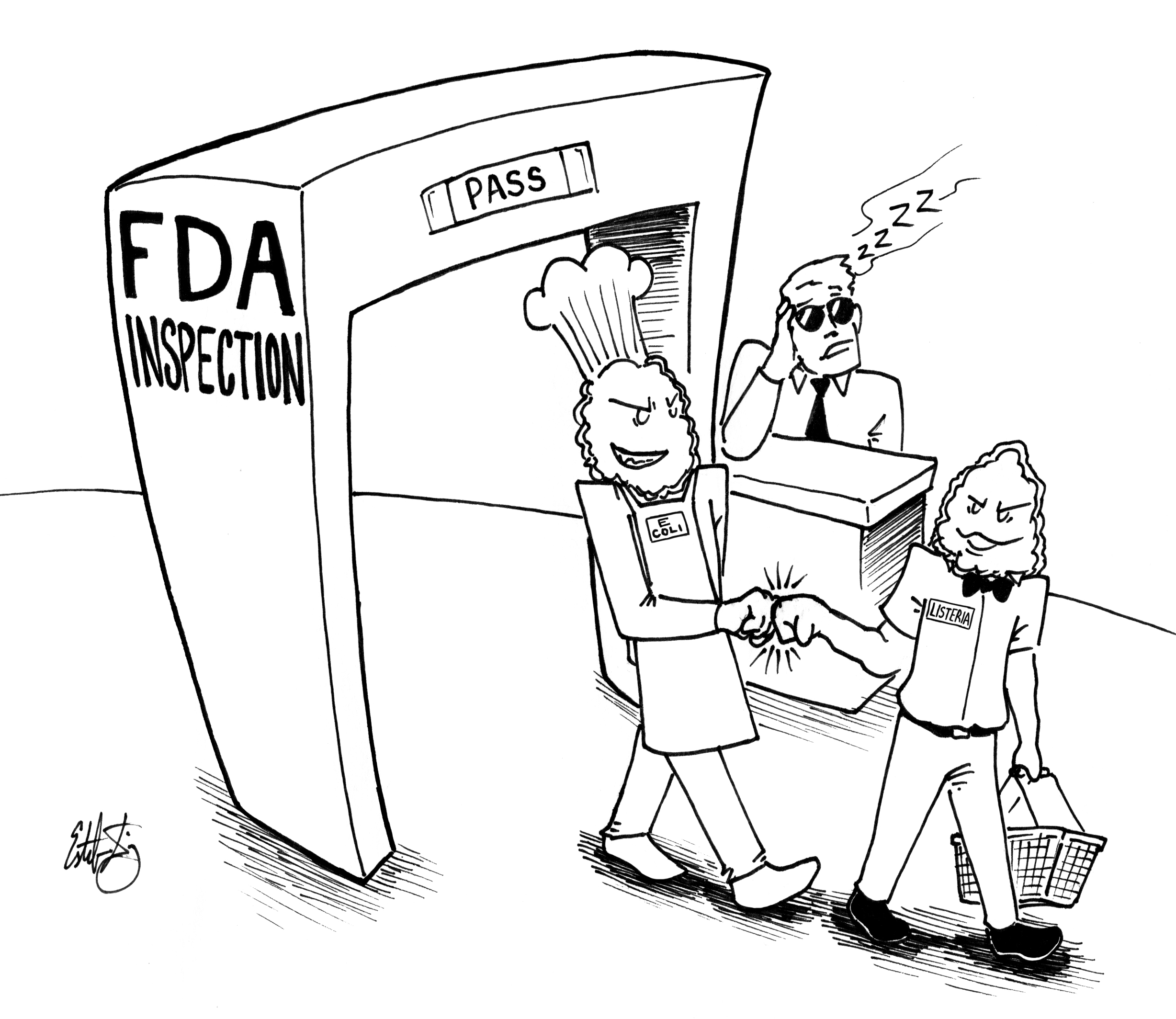
Who knew that cantaloupes could be the cause of 18 deaths and 100 illnesses in 20 states?
Listeria is a type of bacteria normally found in processed meats and sometimes it is found in unpasteurized cheeses and milk, but it is rarely found in foods like cantaloupe.
The recent listeria outbreak has spread throughout the country from Jensen Farms in Holly, Colo., after the farm recalled their cantaloupe on Sept. 14.
Because the cantaloupe from Jensen Farms have traveled around the country to states other than the original 28 they sell to, more people have become sick. In a conference call on Sept. 28, Dr. Thomas Frieden, director of the Center for Disease Control, said, “this is the deadliest outbreak of a foodborne disease that we’ve identified in more than a decade.”
Time magazine reported, “the company said last week that it can’t provide a list of retailers that sold the tainted fruit because the melons were sold and resold.”
Congress passed a law in 2010 in food safety that allows the Food and Drug Administration to improve the traceability of foods to easily detect if an outbreak exists. One of these improvements is that larger farms must submit thorough and detailed plans explaining their methods of keeping their produce safe.
However, the FDA needs to better improve the methods of tracing to stop more outbreaks from occurring, especially in a complex food industry.
In the same Time article, Erik Olson, director of food and consumer safety programs for the Pew Health Group, said, “Clearly the food industry has just changed enormously in the last several decades. It would be virtually impossible to sit down and eat a meal and eat food that hasn’t come from all over the world.”
Does this mean that we need to live in fear when choosing what to eat? How can we tell that something isn’t carrying a deadly disease? The FDA needs to better monitor how foods are produced, manufactured and shipped throughout the country to protect the health of the nation.
Listeria in cantaloupe is not the only problem in food products throughout the country; romaine lettuce has been recalled after federal officials discovered a sample from one bag tested positive for listeria, according to the Christian Science Monitor’s Oct. 4 article. The lettuce outbreak as of now, affects 19 states and Canada in restaurants, cafeterias and other institutions.
E. coli, salmonella and listeria have been detected in different types of food throughout history. In 2008, salmonella was detected in peanut products, killing nine people and causing more than 700 people to become sick; that was the second deadliest outbreak in the United States.
Salmonella has also been recently detected, as of Aug. 2011, in ground turkey throughout 34 states, causing 129 people to be infected.
With these outbreaks, combined with the multiple outbreaks the United States has already experienced this year and the years before, the FDA needs to realize that the system and process of monitoring food production and promoting food safety needs to be modified. Listeria is a deadly bacteria that has the potential and capability to make people sick and even die.
How many more outbreaks will it take until the FDA decided to change its processing and regulating system?






